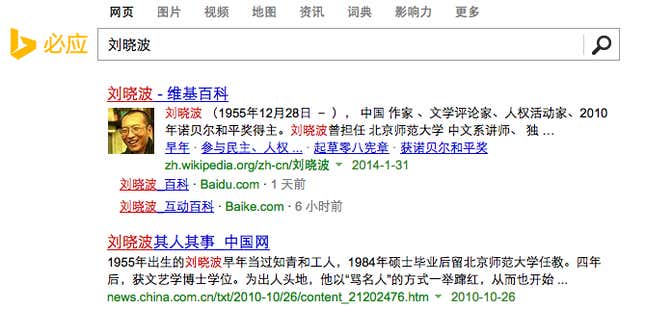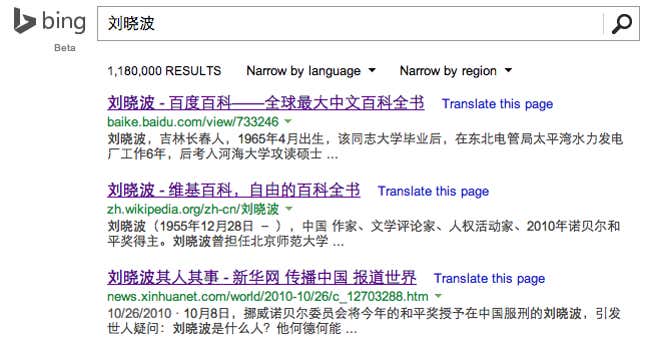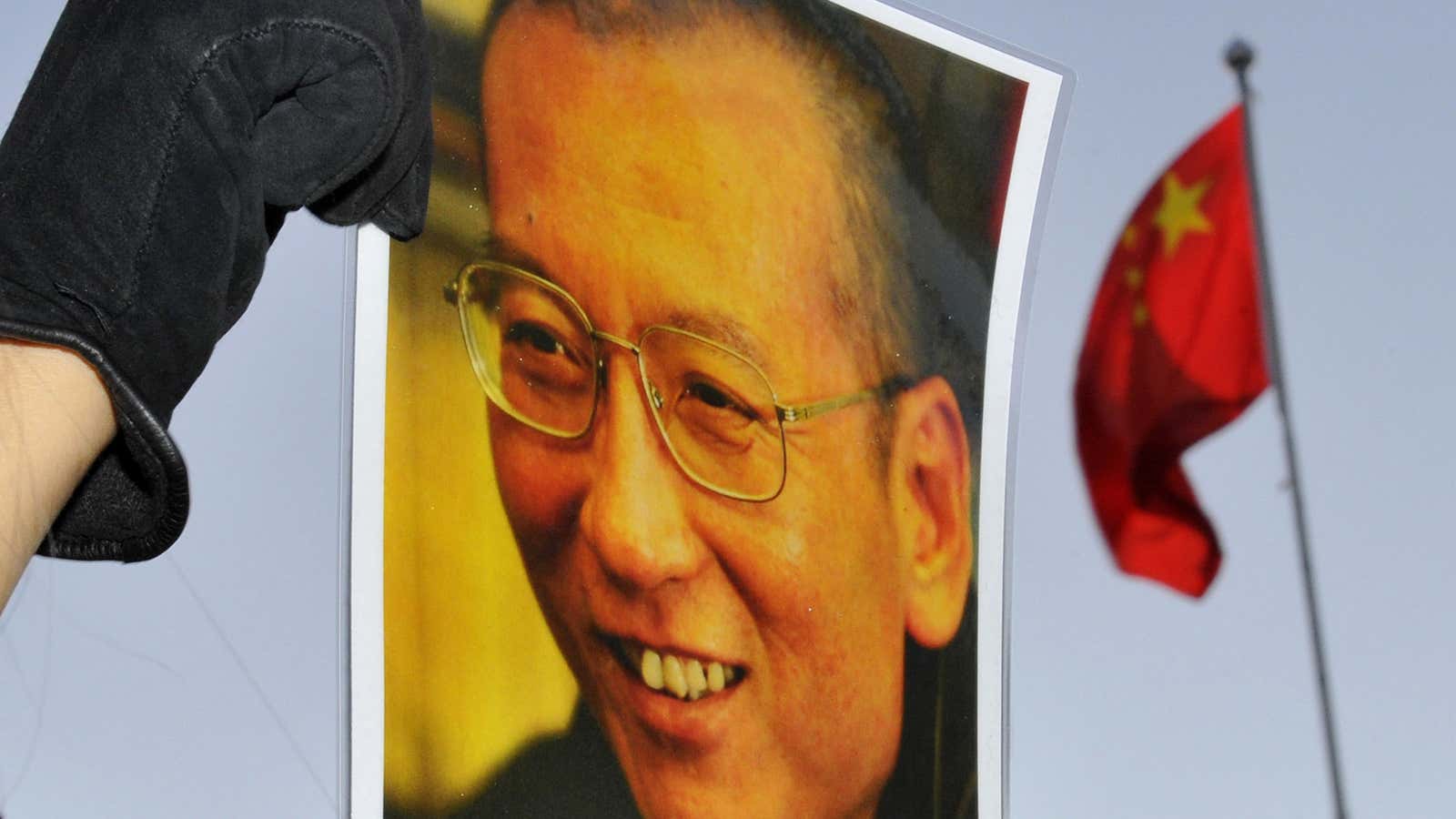Yesterday we reported on the possibility that search results generated by Microsoft’s Bing were being censored even outside of China, either to please China’s censors or due to technical ineptitude. Microsoft says that’s not the case.
“Bing does not apply China’s legal requirements to searches conducted outside of China,” said Stefan Weitz, Bing’s senior director, said in an emailed statement that cited “an error in our system” for the omission of search results for politically “sensitive” topics. (That said, it didn’t really help its case by sending a “shortened” version of the statement to China-based media outlets, as Reuters reports.)
Bing’s statement doesn’t seem entirely accurate, though, based on tests Quartz ran on a handful of controversial words, and adjusting our location.
Here’s what happens when you search 刘晓波 in mainland China…
For instance, say Chinese readers in different places around the world want to learn about Liu Xiaobo, the Chinese political prisoner, Nobel laureate and free speech champion. Bing’s results within China generate Liu’s Wikipedia page, which the Chinese government blocks. The remaining results are from Baike, the censored online encyclopedia, as well as one article (link in Chinese) titled “The twin travesties of Liu Xiaobo and the Nobel Peace Prize,” and another titled (link in Chinese) “These so-called ‘speech crimes’ reflect a misunderstanding of Liu Xiaobo’s trial.” So far, unsurprising.

… and here’s what happens in Taiwan and Hong Kong
In Taiwan, Baike comes up first after Wikipedia, followed by content ranging from a Save Liu Xiaobo blog to a screed published on Xinhua, China’s state press, calling Liu an anti-Chinese extremist (link in Chinese). The same search in Hong Kong generates a slew of Wikipedia pages about Liu, a Facebook link, and some Hong Kong-related news stories about demonstrations.

… and around the world
But Chinese Bing users anywhere else in the world would get the Chinese Communist Party line on Liu: Every single item on the first page except Wikipedia is censored content from within mainland China. Half of the links are to the same article in the official press calling Liu a “pawn of the West” (link in Chinese), among other things.
And here’s what that means
Bing’s results might be due to the algorithm or scarcity of Chinese-language content. Though it’s not public, Bing’s algorithm probably prioritizes content, importance of links to a given page and user engagement signals (such as tweets), says Barry Schwartz, editor of Search Engine Land. There’s no way of knowing, but it seems unlikely that such an algorithm would generate search results so heavily slanted toward party propaganda. Meanwhile, the same search in Google—which left China in 2010 for free-speech-related reasons—includes Chinese-language articles from the New York Times, Voice of America, Deutsche Welle and others.
In practice, this means Bing users in Taiwan and Hong Kong SAR, as well as millions of Chinese readers elsewhere, will find it much harder to learn about Liu Xiaobo’s work than if they were searching in another language. In effect, however, Bing’s algorithm appears to be rewriting Liu’s history in a way that roundly favors the Chinese government’s narrative, and making the Chinese language itself a propaganda instrument.
